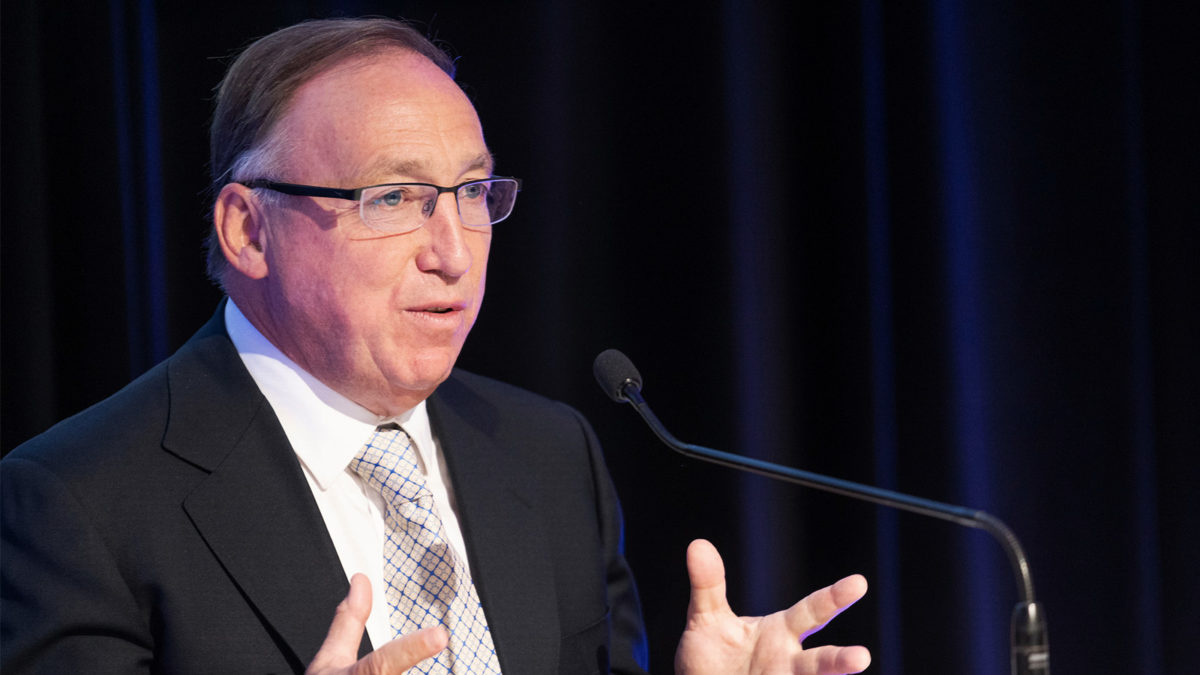‘You never want to accept how bad it is’: AustralianSuper’s unlisted property problem
While Australia’s biggest super funds have pushed deeper into private markets as their size makes adding value in equities harder, AustralianSuper’s experience in unlisted property has been “really disappointing”.
“It was the wrong strategy; we were overweight retail and had more international property than Australian property,” AustralianSuper CIO Mark Delaney told the Morningstar Investment Conference on Wednesday. “Both of them were the wrong decisions. And with property when you’ve got something underperforming it’s very hard to get out of it because you never want to accept how bad it is until it gets really bad.”
Retail property was disintermediated by online shopping and AustralianSuper was underweight industrial property, a strategy that Delaney called “the worst of all worlds”. The one international asset worth writing home about has been the $1.3 billion AustralianSuper tipped into redeveloping London’s King’s Cross district, but the others have been lacklustre. While AustralianSuper has frozen the allocations, it’s difficult to get out of a private markets problem in a hurry, Delaney says; it can take five years or more. Figuring out where things went wrong inside the organisation is easier.
“We’ve terminated internal managers for not delivering the performance we’re after,” Delaney said. “If anything they get more scrutiny than external managers do because the investment committee and everybody else are all over them.
“When we look at our history we’ve hung on to external managers that have underperformed for too long; they used to be good once, and they’ll come back and they’ll come good again – how long does it take to give up faith? When you look back you should have got rid of them when you first started worrying about them. How many of them come good after your first started to worry about them? One in three? Even when we know this we don’t do it fast enough.”
Internal management is easier to fix because it can be defunded pretty quickly while the structure of the strategy gets rebuilt. If it can’t be rebuilt in a viable way it can be terminated, then indexed or outsourced.
“I hope we’re not softer on internal staff than we are on external,” Delaney said. “I actually worry that it might be the reverse.”
While scepticism persists about private market valuations and super funds’ high allocation to asset classes like private equity and infrastructure, Delaney said that there was little chance that big funds would experience a liquidity crunch in the event of a massive fall in listed indices.
“(APRA) is using lots of stress testing, particularly for the big funds, to avoid that situation. That doesn’t mean it can’t happen,” Delaney said. “But I think there’s probably less chance than what there was previously, because the regulator is all over it. We do stress-testing where we use member switching investment options in combination with early release scenarios, plus something else, and then we double it – how do we survive that?”
Still, lags in private market valuations can spell trouble for member equity.
“If you’ve got a material position in the portfolio in private assets and they’re not appropriately marked, if members change investment options from one to another – say a smart member takes advantage of a lag in private market valuations, they’ll transfer value from the existing pool of members to the one who switched,” Delaney said. “So we go to a lot of effort to make sure that’s not the case.”











